Various Artists – the language of
QUIET DESIGN RECORDS
the language of is a compilation CD of ten pieces by eight emerging composers in NYC, many of whom are associated with the Wet Ink Ensemble. Released by Quiet Design Records in Austin, TX, this compilation is a forward-thinking treatise on a constantly evolving new music scene. The production, recording, and design chores were undertaken by the composers and their colleagues, thus comprising a very personalized aesthetic. the language of is an essential purchase, not only for its DIY approach, but because it contains a variety of exciting, well executed compositions. And due to the wobbly legs of the music industry, resourceful composers could do well by using this CD as a business model.
There is an immediacy and yearning to the music featured on this CD. The emotional content (which, of course, varies from piece to piece) is enhanced by the recording techniques used to create the myriad sound-worlds, an approach that is both startling and engaging. There is not one ounce of sonic sterility that one might find on pristinely recorded chamber music CDs. Many of the recording techniques used are in-your-face, close mic’d, compressed, and manipulated to each pieces’ ambient requirements. Some of the pieces that most represent traditional chamber music are ambient mic’d, a representation that provides a bird’s-ear-view (sorry about that one) for the listener, or an aural realism, if you will. The variety of production from piece to piece is therefore more akin to the world of rock, jazz, and experimental music. The packaging, designed by composer Clara Latham, is an attractive and environmentally friendly cardboard cover that features nothing in the form of liner notes (this may be one of my only complaints, but it definitely adds a veil of mystery to the release).
A brief overview of each piece follows after the break: (more…)
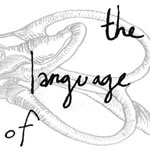
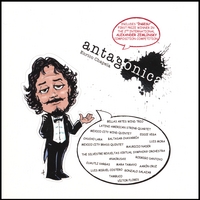
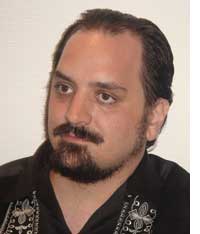 This is an exciting time for Chapela. He’s playing the guitar part in the premiere. Simultaneously, he’s working hard to finish a commission for the LA Philharmonic. “At first, I thought it would be too much to be the solo guitarist at the Brooklyn Philharmonic performances while trying to finish the piece for LA. But then I realized, who could ask for a better gig than this? Between practicing and writing, I told my wife to not expect to see me much for a couple of months!”
This is an exciting time for Chapela. He’s playing the guitar part in the premiere. Simultaneously, he’s working hard to finish a commission for the LA Philharmonic. “At first, I thought it would be too much to be the solo guitarist at the Brooklyn Philharmonic performances while trying to finish the piece for LA. But then I realized, who could ask for a better gig than this? Between practicing and writing, I told my wife to not expect to see me much for a couple of months!”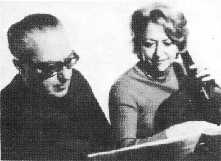 Aurora Natola-Ginastera, internationally renowned cello virtuoso and wife of the late composer, Alberto Ginastera (1916-1983), passed away on Sunday, January 25, in Geneva. She was 85 years old. (Alberto wrote his second Cello Concerto for her, at least. What would our repertoire look like if not for composers in love?! ) The funeral information follows. All best. ~ Sarah
Aurora Natola-Ginastera, internationally renowned cello virtuoso and wife of the late composer, Alberto Ginastera (1916-1983), passed away on Sunday, January 25, in Geneva. She was 85 years old. (Alberto wrote his second Cello Concerto for her, at least. What would our repertoire look like if not for composers in love?! ) The funeral information follows. All best. ~ Sarah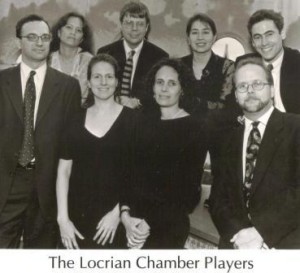
 George Perle
George Perle 